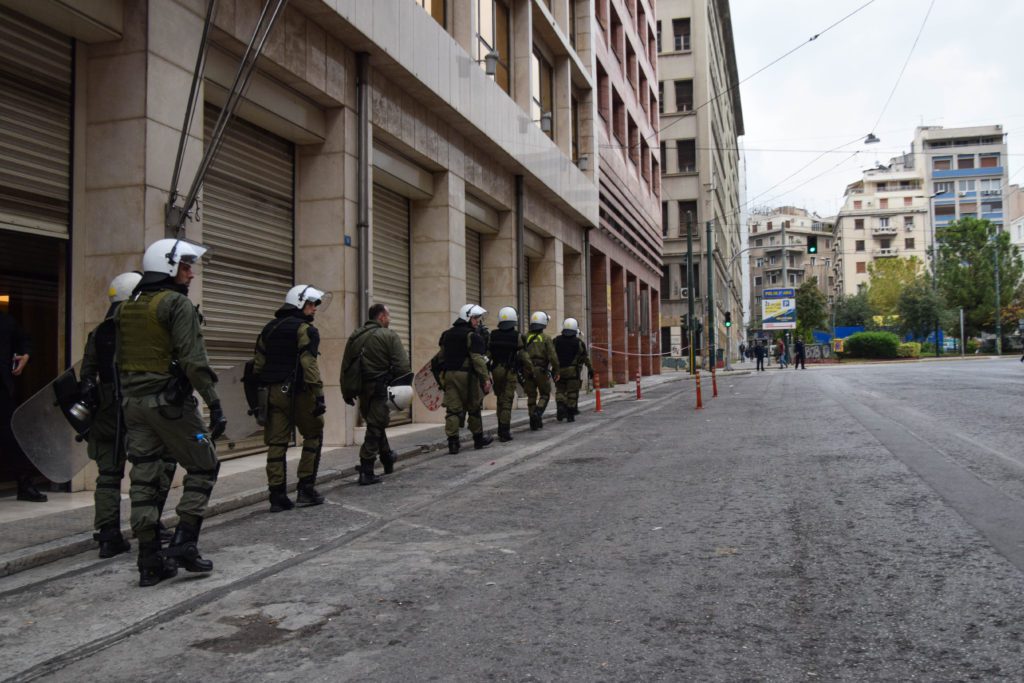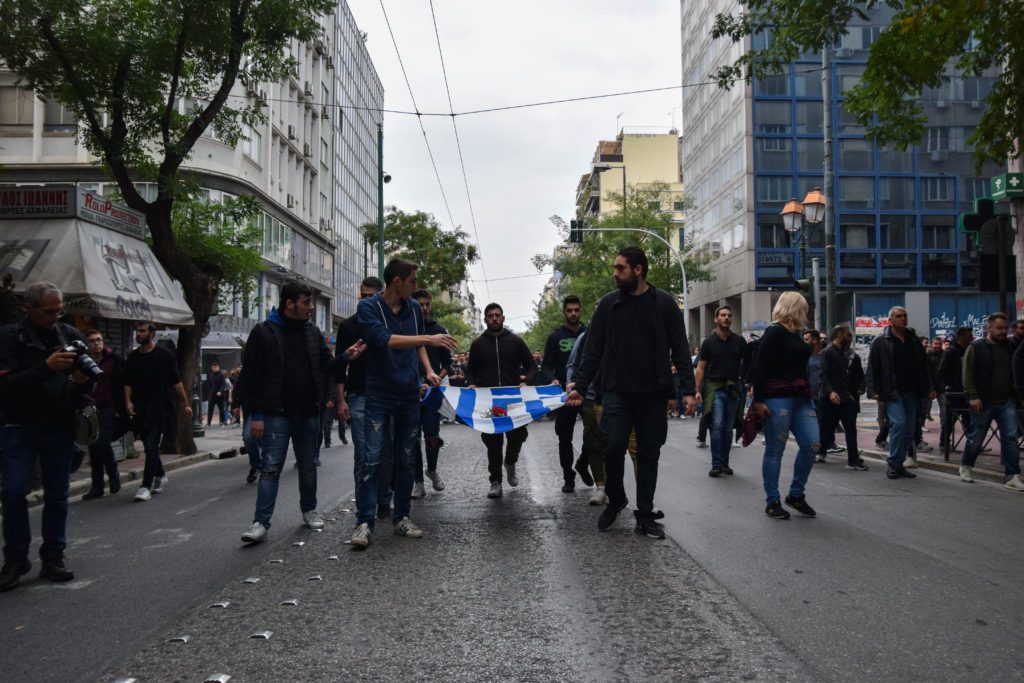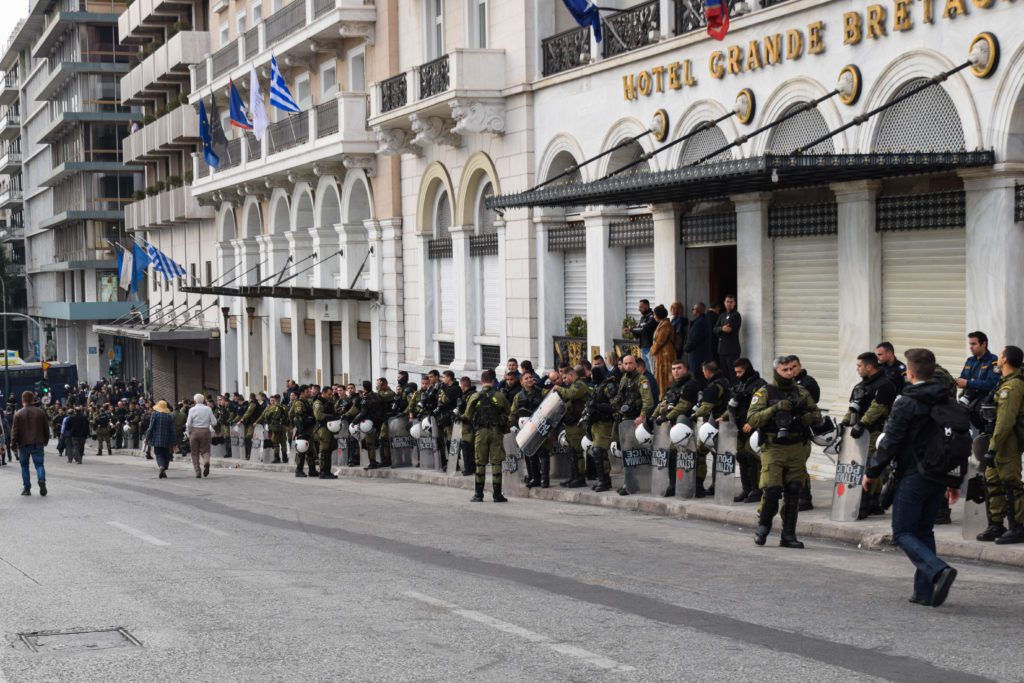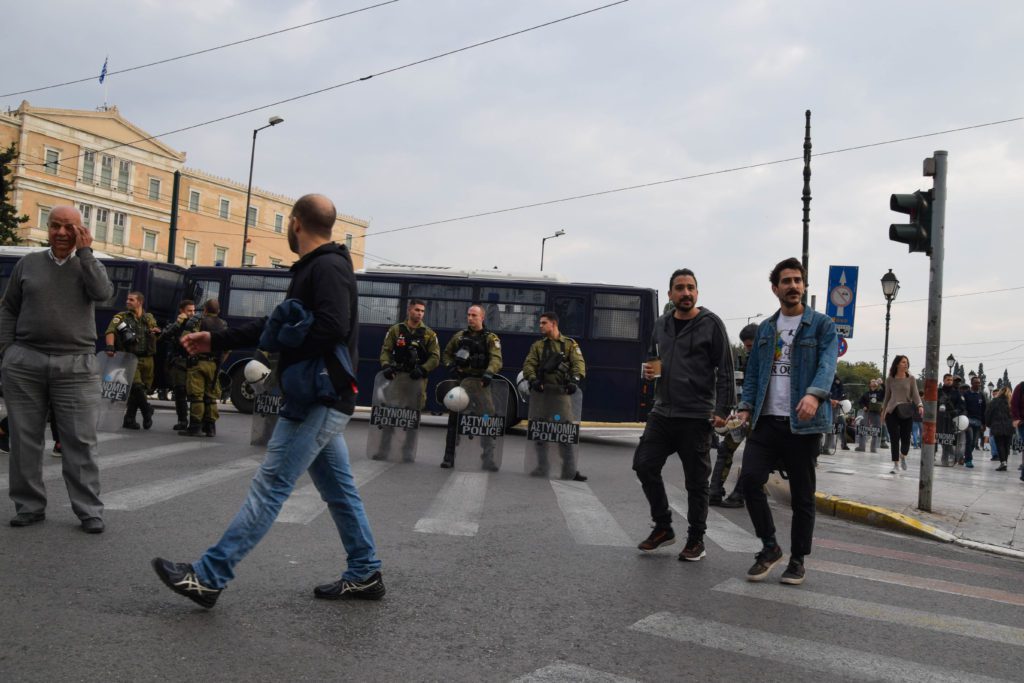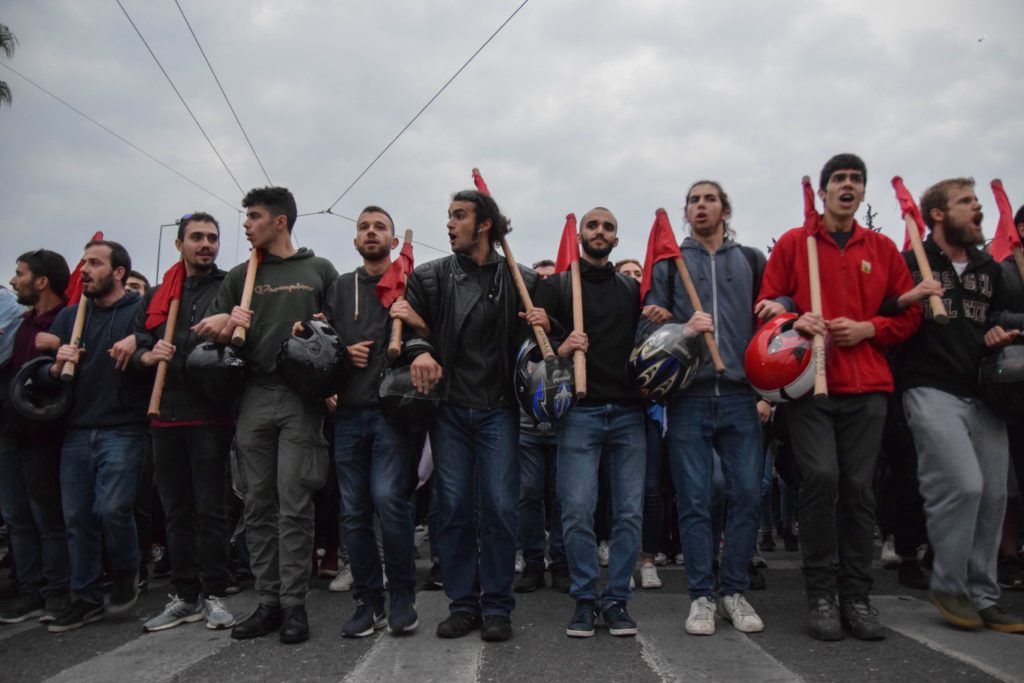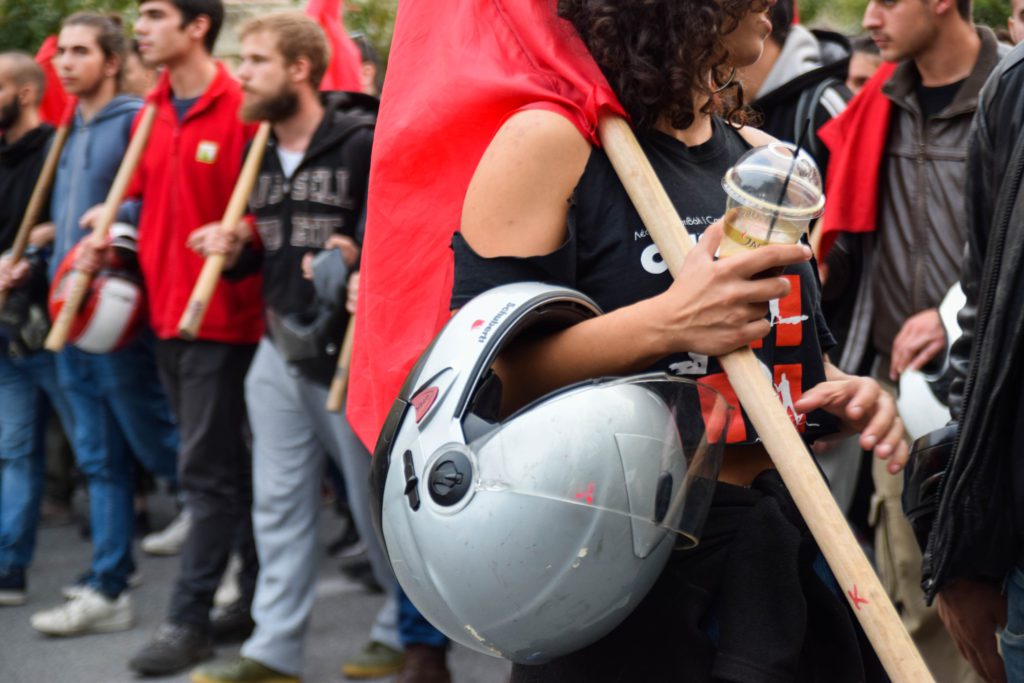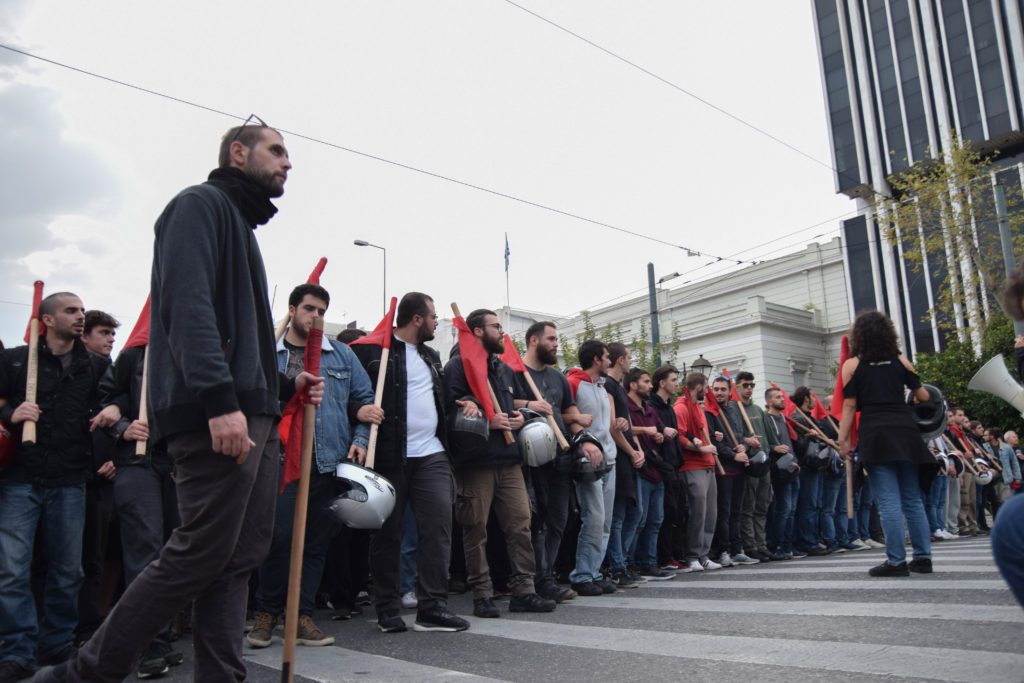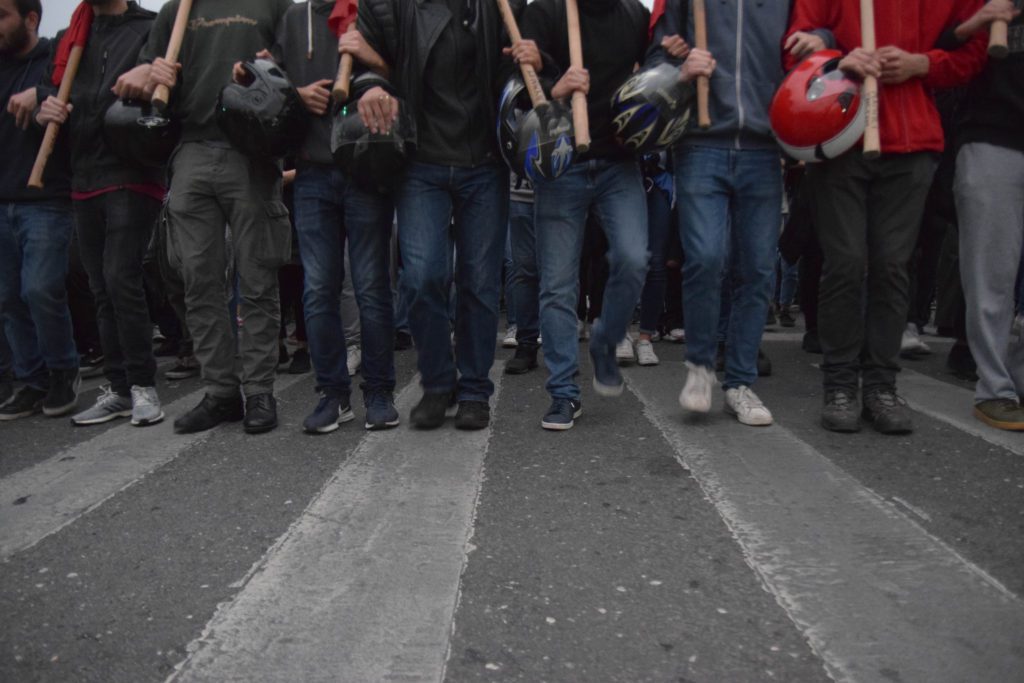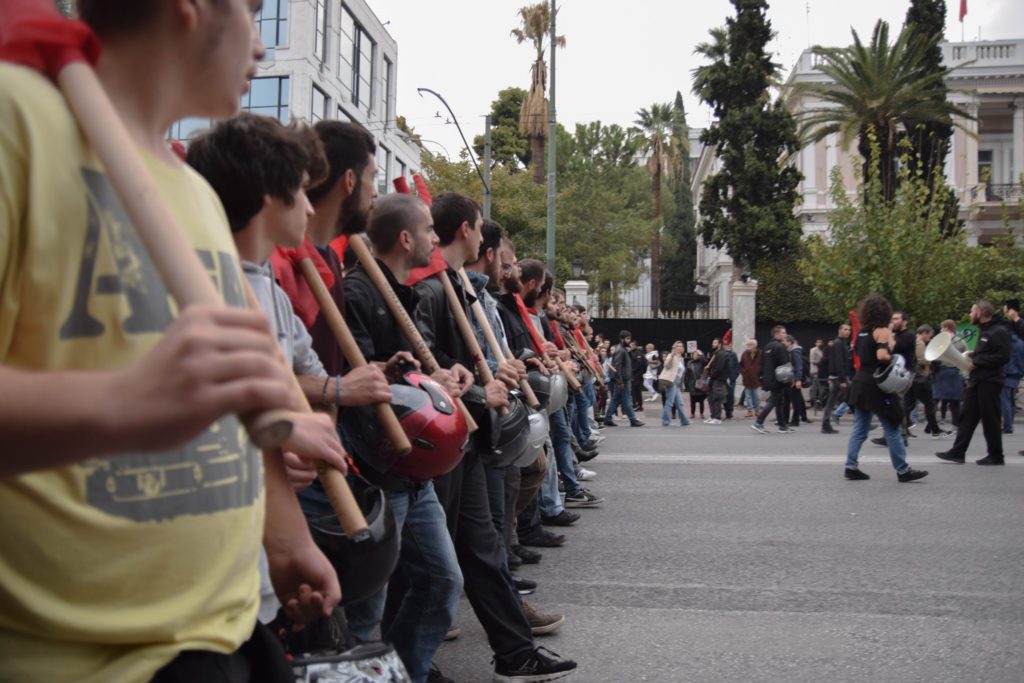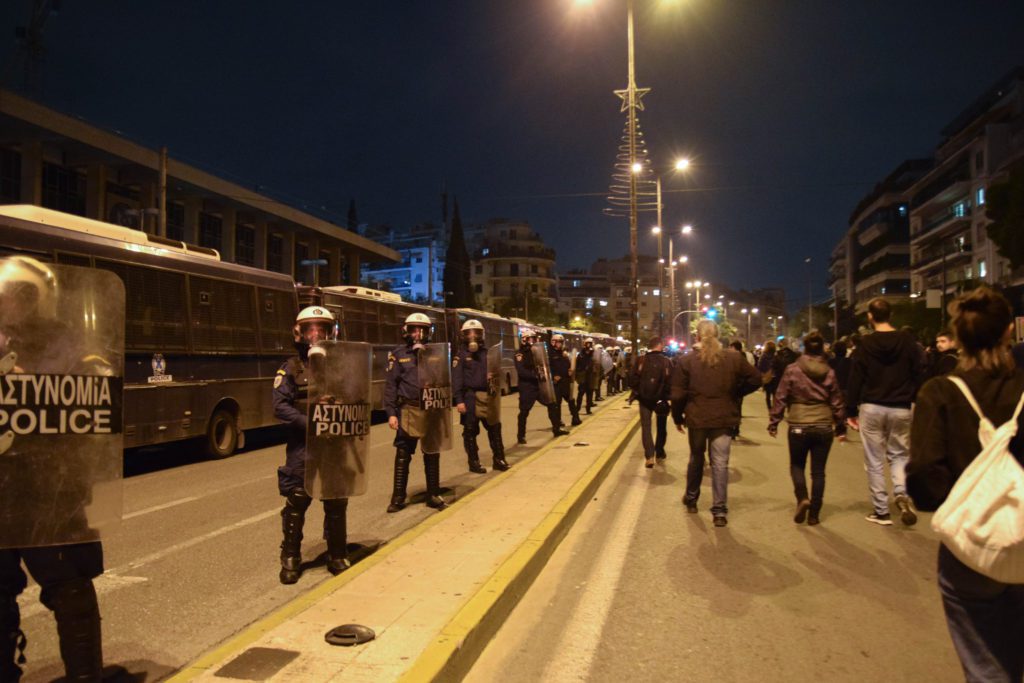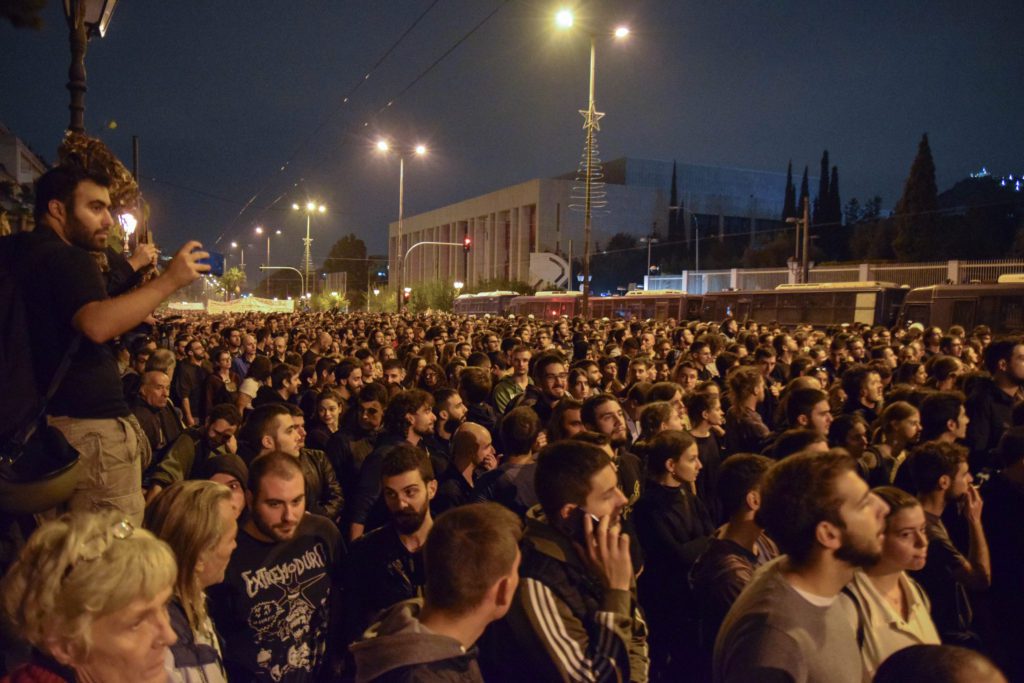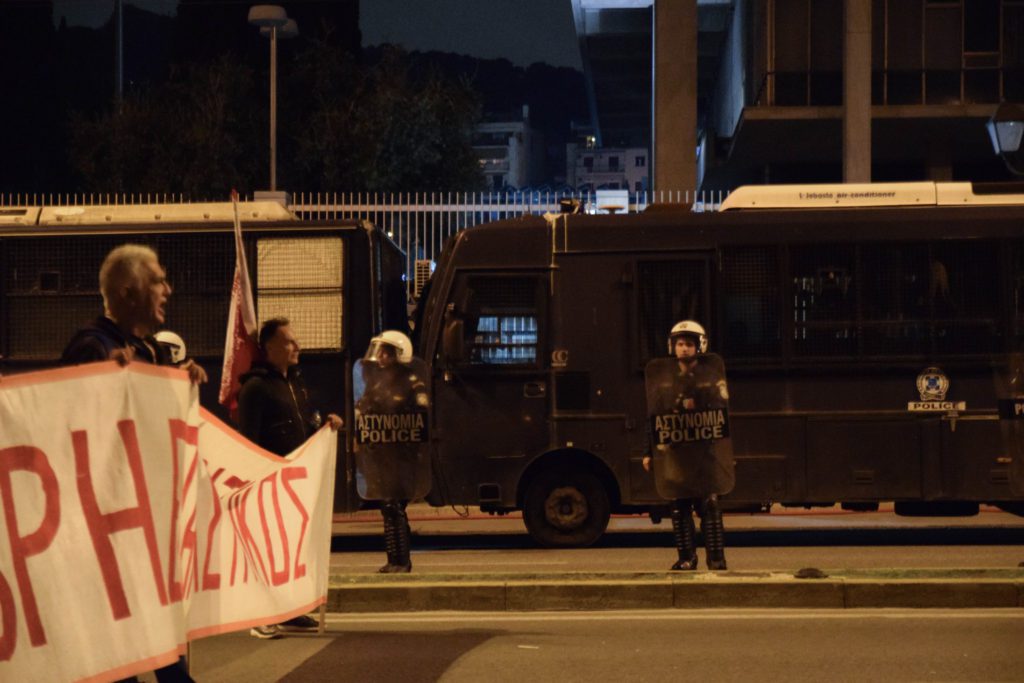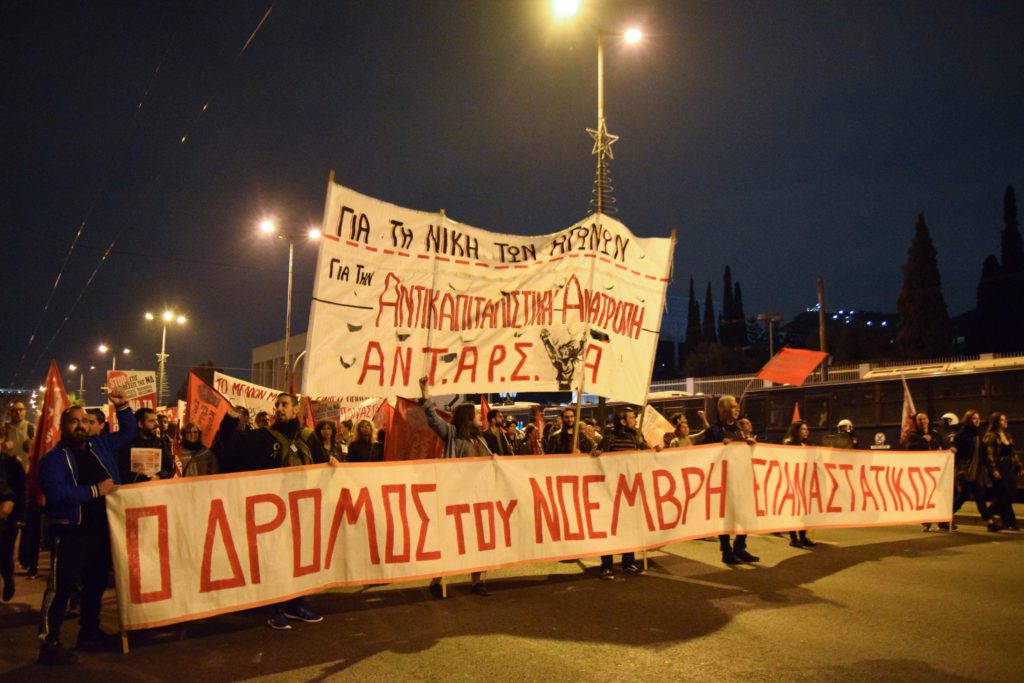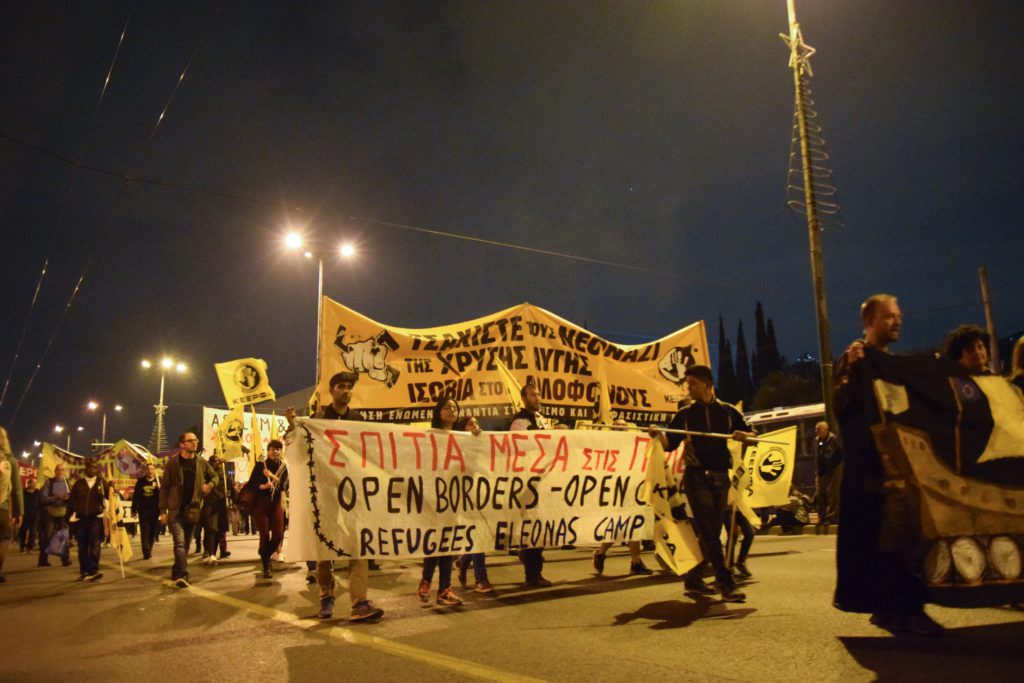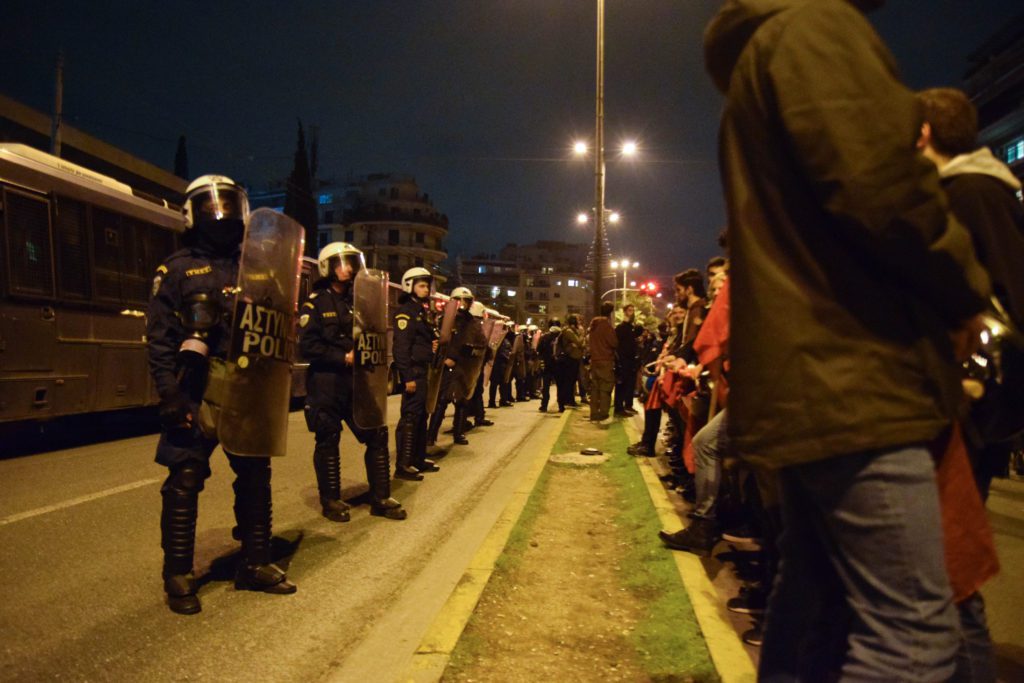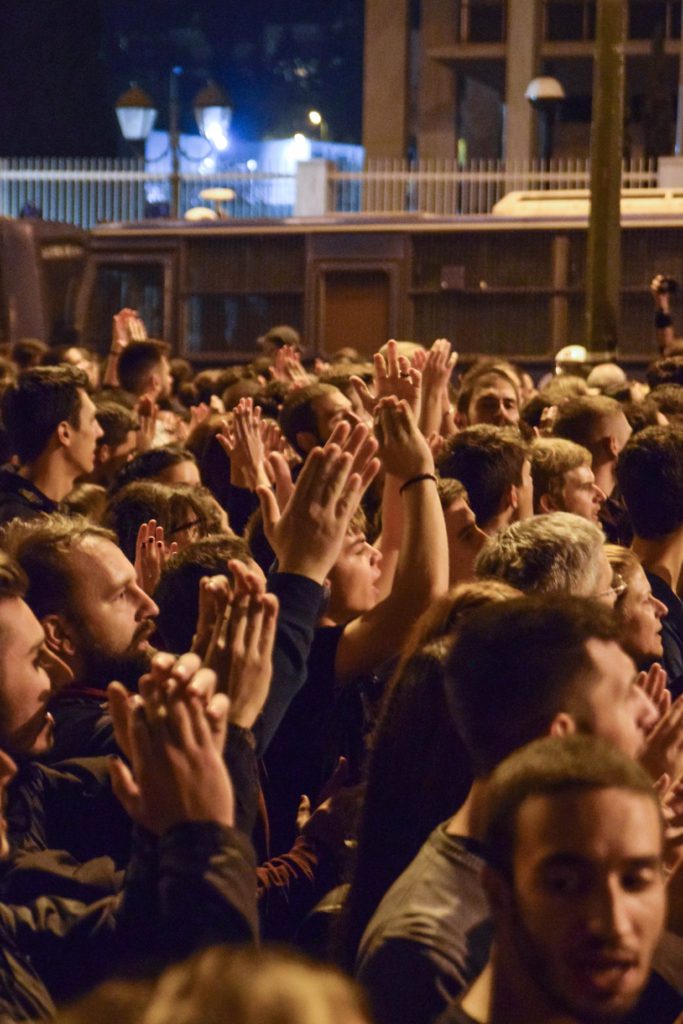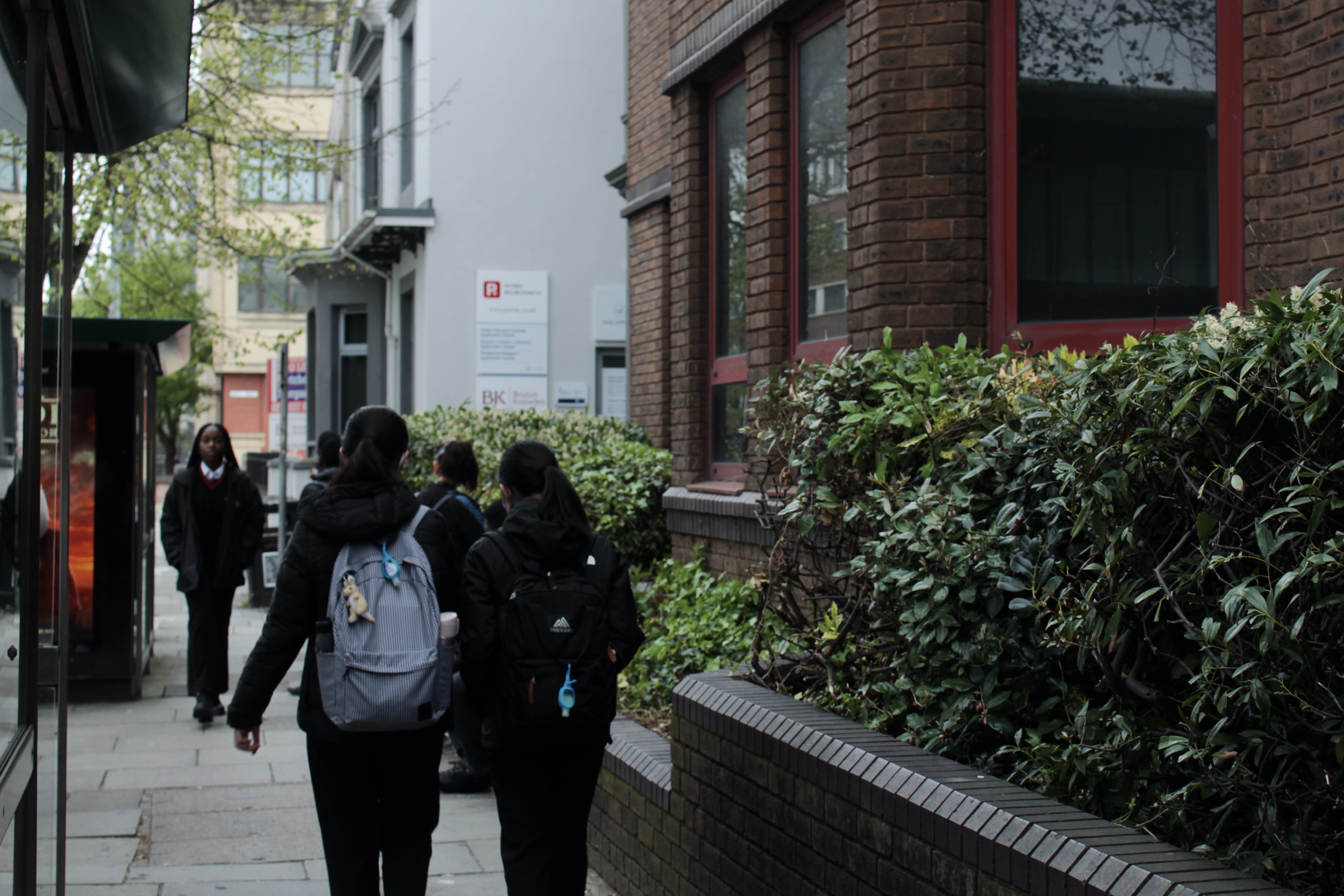Report: Athens Polytechnic Uprising – How Greek Students Overthrew a Coup
IN JULY, VOICE.WALES EDITOR & PHOTOGRAPHER, V MERKOV, WENT BACK TO HER HOME COUNTRY OF GREECE.
WHILST IN ATHENS, SHE HAS BEEN INVOLVED IN DIFFERENT SOCIAL MOVEMENTS AS THE COUNTRY FACES A NEW RIGHT WING GOVERNMENT AND IS STILL REELING FROM THE SOVEREIGN DEBT CRISIS.
HERE, SHE CAPTURES FIRST HAND THE MOOD OF A RECENT DEMONSTRATION THAT SAW STUDENTS CONFRONT A NEW LAW THAT WOULD PAVE THE WAY FOR POLICE REPRESSION OF PROTEST. (PHOTO REEL AT BOTTOM)
November 2019
Words and images by V Merkov
Last Sunday, 17th November, I joined thousands of protestors in the streets of central Athens. The protest takes place annually to commemorate the anniversary of the student uprising against the military junta. The violent crackdown that cost dozens of lives, when a tank burst through the gates of the Athens Polytechnic School, marked the beginning of the end for the dictatorship. In its legacy stands legislation that has provided political sanctuary for universities, under which police required an express invitation from the Rector’s Council including student representatives, in order to enter campus.
The new conservative government in an effort to quash any form of resistance from the population set its sight firmly on the sanctuary and what it represents.
“We have turned our universities into Molotov factories,” Mitsotakis said on April 18 during his election campaign justifying a new law that would abolish university immunity from police intervention.
This Polytechnic anniversary acted as a trial run for the new law with police aggravating already tense spirits in the run up to it. During early November, 200 young Greeks faced the formidable Greek riot police inside the Economic University of Athens chanting “the dictatorship didn’t end in ‘73”. Lambros Goulas, arrested on 7th November, described the violence that he suffered in their hands including being beaten, forcibly stripped and passed between officers shouting sexist and homophobic abuse at him.
The protest itself, one of the most populous in recent years, was peaceful without any incidents. However, several press reports later in the evening cited an attempt by police to evacuate and cordon-off the inner city square of Exarchia, the same-name neighborhood behind the Polytechnic, a “hub” for anarchists and self-styled anti-state militants in the Greek capital. The attempt follows weeks of harassment by riot police stationed on street corners in the area.
Footage from the night shows riot police violently attacking local residents and independent journalists. An 18 year old student recording events from the rooftop of his building was violently attacked after the police stormed his building. He alleges severe injuries that have left him with difficulty to urinate and having to drag his leg because of broken toes.
Human Rights organisations have condemned the authoritarianism and impunity in which the police have operated. Amnesty International who have repeatedly investigated the systemic use of police violence in Greece are calling for the transparent investigation into Goulas’ arrests and allegations.


